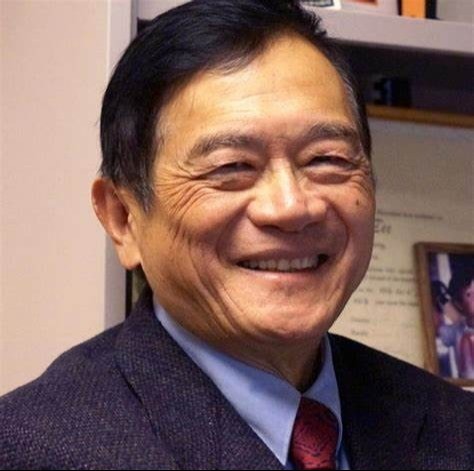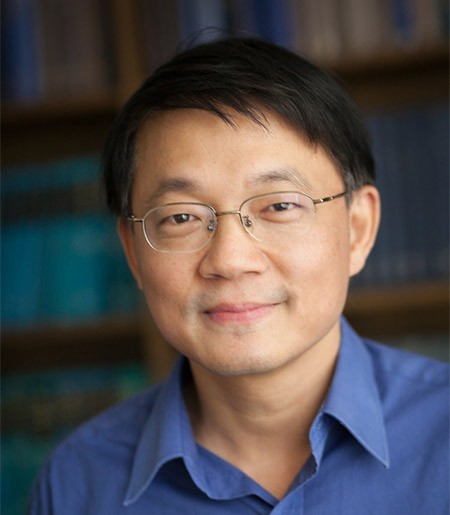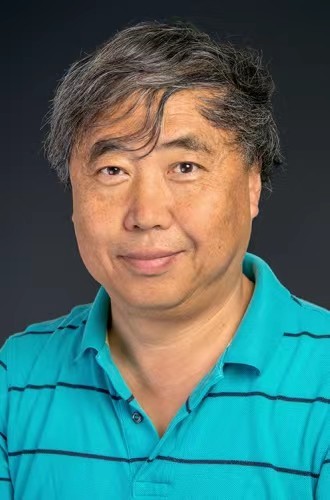Zhiyuan College and the Tsung Dao Lee Institute (TDLI) at Shanghai Jiao Tong University (SJTU) launched “The Largest and the Smallest” International Summer School on Physics (ISSP) in 2024. The Summer School mainly aims at providing undergraduate students with strong passion in physics from China and overseas universities with a platform to gain experience with cutting-edge research and build friendships among their peers.
The Largest and the Smallest represent the two extremes of the universe, one being the vast cosmos and the other being the tiny fundamental particles. Although they are vastly different, they are intricately connected to some extent. To understand the essence of this connection, a deep understanding of the fundamental physical laws of the universe is required. This event revolves around the vast and the minuscule. All courses and activities are conducted in English and include the following modules:
- 32 hours of specialized courses
- A series of cutting-edge academic lectures
- Team research practice projects
- "Visit SJTU" & Shanghai exploration
- Exciting cultural and sports activities
This year's SJTU ISSP successfully concluded on July 18. The two-week program brought together 88 students from 28 top Chinese universities and 33 outstanding students from 20 prestigious international universities, including the University of Illinois Urbana-Champaign, University College London, RWTH Aachen University, École Polytechnique, National University of Singapore, and Kyoto University.
Organizers
Zhiyuan College: A Cradle for Elite Talents
Zhiyuan College, founded in 2010, is directly funded by Ministry of Education, China. It is an undergraduate institute within SJTU that provides an elite-education for the top 10% undergraduate students and bear a mission to train them to become future leaders in science and technology. In 2016, its “Curiosity-Driven Initiative Learning” project won the “Cultivating Curiosity Award” and “Natural Sciences Award” at the Education Innovation Conference of the 3rd Global “Reimagine Education 2016”, which was jointly held by Wharton School of Business, University of Pennsylvania and International Education Rating Organization QS. In 2024, Zhiyuan College was recognized as one of the National Advanced Organizations in Education.

TDLI: A Highland for Research and Innovation
Proposed by the Nobel laureate Tsung-Dao Lee and with support and endorsement from governments and ministries at national and municipal levels, Tsung-Dao Lee Institute (TDLI) is a basic research institute established at Shanghai Jiao Tong University in November 2016, aiming to build itself as a world-leading science institute. By bringing the research to extreme environments or creating extreme conditions, TDLI strive to explore and control exotic and extreme states of matter with extreme detection methods. Eying on the greatest unsolved mysteries of the universe, TDLI is pledged to systemically assemble the teams of close to 100 scientists to carry out pioneering research and collaboration on particle and nuclear physics, astronomy and astrophysics, and condensed matter physics.

Courses & Seminars
Quantum Field Theory, an Overview
Instructor: Anthony Zee
An overview and appreciation of quantum field theory, the most precisely tested theory in physics. The talk is addressed to those without any knowledge of quantum field theory. It is based on Prof. Zee's textbook Quantum Field Theory in a Nutshell and his semi-popular book Quantum Field Theory, as Simply as Possible (both published by Princeton University Press.) The former has already been translated into Chinese and the latter is being translated.
Astrophysics of Compact Objects, Transients and Exoplanets
Instructor: Lai Dong
Compact objects (white dwarfs, neutron stars and black holes) are the end states of the evolution of normal stars. They are associated with some of the most exotic phenomena and environments in the universe. They have been observed in all electromagnetic wave bands and in gravitational waves. Their strong gravities, high densities and magnetic fields provide a unique avenue for exploring physics under extreme conditions. On the other hand, many Sun-like stars have been found to host planets. These "exoplanets" have diverse properties and often quite different from the solar system counterparts. Their extreme properties challenge our understanding of planet formation. The studies of compact objects and exoplanets constitute some of the most exciting areas of astrophysics research.
This mini-course will review the basic physics and astrophysics of compact objects, and various time-domain transient phenomena associated with them (e.g. supernovae, gamma ray bursts, tidal disruption events). Contemporary research topics will be introduced along the way. The course will also review some current observational puzzles related to exoplanets, and the physics needed for their understanding.
Elementary Particle Detection
Instructor: Liu Jianglai
This short survey course provides an overview of particle astrophysics—a field that employs elementary particles to explore fundamental questions in astrophysics and cosmology. The curriculum begins with foundational concepts, including the properties of elementary particles, their interaction processes, and relevant detector technologies. Building on this groundwork, the course delves into key unresolved challenges in the field, such as:
- What is the nature of dark matter?
- How do the fundamental properties of neutrinos influence the evolution of the universe?
- What is the origin of the ultrahigh energy cosmic rays?
Students will engage with global experimental efforts addressing these questions, gaining insight into cutting-edge research methodologies. To reinforce learning, periodic quizzes will incorporate hands-on, back-of-the-envelope calculations and concrete examples. Additionally, laboratory tours will connect theoretical concepts to real-world applications, offering students a tangible understanding of experimental practices in the field.
Geometric phase in solid state physics
Instructor: Niu Qian
Geometric phase (Berry phase) is one of the most fundamental concepts in condensed matter physics. Together with the band structure, it can connect the microscopic crystal structure with the macroscopic physical properties. Therefore, it has inspired the study of the topological phase and led to a systematic re-formulation of the solid state physics.
In this set of lectures, we offer a concise introduction of the Berry phase effect in solid state physics. Lecture 1 is an overview of the Berry phase effect, with the concept of parallel transport explained in detail. Lecture 2 introduces the semiclassical dynamics theory which is an intuitive and systematic way to include the Berry phase effect in solids. The generalization of this theory up to second order is also discussed, leading to the intrinsic nonlinear Hall effect. In lecture 3, we will discuss the adiabatic pumping effect and the semiclassical transport theory, with the nonlinear Hall effect from the Berry curvature dipole explained in detail. In lecture 4, we will discuss how to calculate equilibrium response functions, with special attention paid to the magnetic properties.
Subjects of Seminars
In addition to the courses, the Summer School also features a series of seminars, with topics including Direct Dark Matter Detection, Deep Sea Neutrino Telescope, Muon Physics, Origin of Mass, Dark Photons and Dark Matter, Exoplanets and Alien Civilizations, Black Hole Imaging, Quantum Atmosphere, Superconductivity, Quantum Computing, Quantum Materials and new states of matter, Large Scale Structural Evolution of the Universe, Laboratory Astrophysics, Axion Dark Matter, and AI for Physics.
Instructors

Anothy Zee is a professor in the Department of Physics at the University of California, Santa Barbara and a member of the American Academy of Arts and Sciences. His research interests include high-energy physics, quantum field theory, cosmology, biophysics, condensed matter physics and mathematical physics. He has authored or co-authored more than 200 scientific publications and several books.

Dong Lai is a T.D.Lee Chair Professor and Astrophysics Division head at Tsung-Dao Lee Institute, Shanghai Jiao Tong University. From 1997 to 2025, he was on the faculty at Cornell University, where he was the Benson and Mary Simon Professor in Astrophysics. He has made significant contribution to the understanding of the physical processes around compact objects (black holes, neutron stars and white dwarfs), including the QED effect in radiation from magnetic neutron stars, the origin of pulsar kicks, gravitational wave sources, and accrection disks around magnetic stars and compact objects. He has also made important contributions in several areas of exoplanetary dynamics. He has received Sloan Fellowship, Simons Fellowship and distinguished graduate teaching and mentoring award from Cornell. In 2024 he received the Dirk Brouwer Award from the American Astronomical Society, the highest international award in dynamical astronomy.

Jianglai Liu is a Distinguished Professor at SJTU and Deputy Director of the TDLI. He is the spokesperson for the PandaX dark matter experiment and has received awards including the National Science Fund for Distinguished Young Scholars and the First Prize in Natural Science from the Ministry of Education.

Qian Niu is a Distinguished Chair Professor at USTC and former Sid W. Richardson Foundation Chair at UT Austin. His research focuses on quantum Hall effects, quasicrystals, ultracold atoms, spin transport, and graphene materials. He has published around 280 papers with over 33,000 citations and is a Fellow of the American Physical Society.
Extracurricular Activities
Beyond the core curriculum, participants engaged in complementary academic activities including interactive 'Chalk Talk' sessions with over 20 leading scientists and 13 cutting-edge lectures spanning astrophysics to quantum science, with a dedicated 'AI for Physics' forum examining artificial intelligence applications in contemporary research. The program also incorporated cultural immersion components, featuring visits to Shanghai's iconic Bund and Yu Garden that showcased the city's unique synthesis of historical tradition and modern development. These diverse experiences culminated in a closing ceremony where student representatives from Peking University, SJTU, École Polytechnique, and RWTH Aachen reflected on their interdisciplinary learning journey.



Schedule

Reflections on ISSP
Highlights




